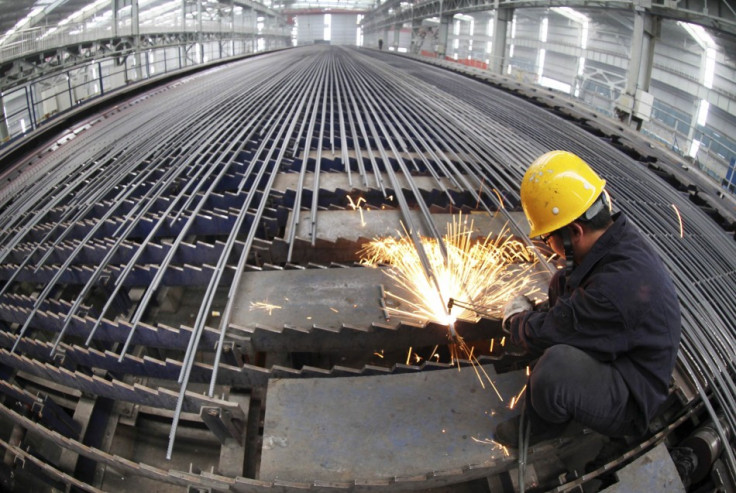China Manufacturing Data Indicates Slower Growth in February

China's manufacturing sector slowed in February, according to data released by an official and a private sector survey, raising recovery concerns on the world's second largest economy.
The country's official purchasing managers index (PMI) released by the National Bureau of Statistics and China Federation of Logistics & Purchasing showed that manufacturing fell to 50.1 during the month from the 50.4 recorded in the previous. This was below the 50.5 mark estimated by separate analysts' polls from Bloomberg and Dow Jones newswires.
HSBC's final manufacturing PMI for February dropped to 50.4, a four-month low, after touching a two-year peak of 52.3 in January.
Although a reading above 50 indicates expansion, the data underscores the issues awaiting China's incoming leaders as they take office this month following the annual parliament session. The government will be under pressure to maintain the economic recovery after having expanded at the slowest pace in 13 years in 2012.
The data also reiterates that China should not be looking to tighten its monetary policy for the moment despite inflationary concerns. The People's Bank of China (PBOC) had begun to drain liquidity from the markets in the previous week.
HSBC's data showed that unlike recent months when weak external demand contributed to slow growth, domestic demand was the major cause of concern in February. A sub-index that tracks new orders dropped to fell to 51.4 from January's two-year-high of 53.7.
But analysts point out that the weakness in the sector does not point to any concerns on China's capacity to achieve growth targets this year.
"The above-50 reading of the PMI still indicates that the economy is on an expansion mode," said China economists at ANZ.
"In our view, even though headwinds remain, China's GDP growth will still likely come in around 8 percent in Q1, supported by faster investment growth in western and central Chinese provinces due to the renewed urbanisation drive."
Analysts further warn that the Chinese economic data for first two months of the year is often distorted by the Lunar New Year holidays. Manufacturers normally shift their operations ahead of the festival, which fell in January in 2012 and in February this year.
China's logistics federation has pointed this out as a contributor to the decline in figures, adding that the economy is still stabilising.
© Copyright IBTimes 2025. All rights reserved.



















